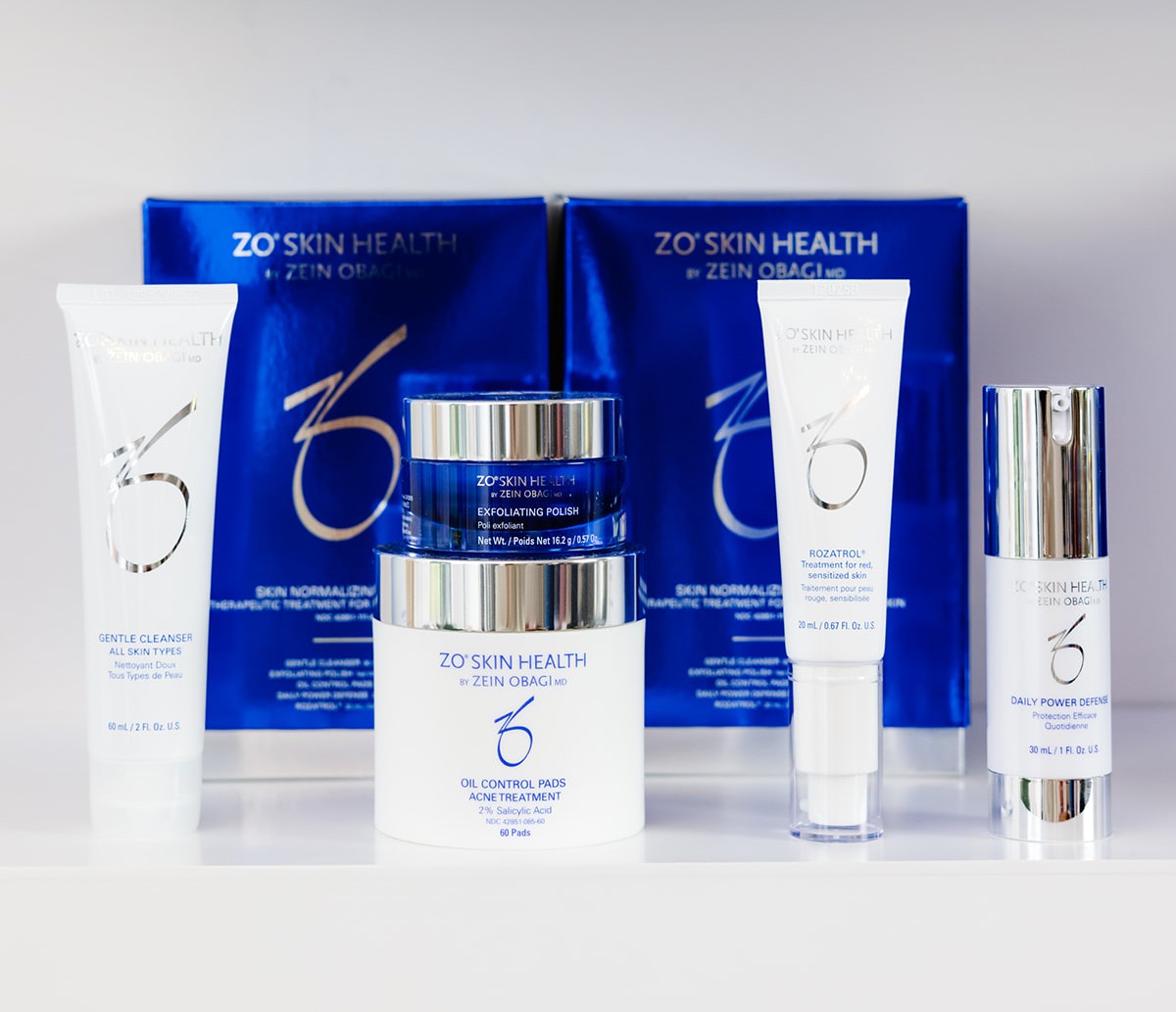Medically Reviewed by Rachael Taylor, PA-C
Dealing with skin redness can feel like an uphill battle. Whether it’s rosacea, post-procedure irritation, or chronic inflammation, the right routine and treatments can help calm your skin, reduce flare-ups, and restore a healthy, even tone. Here’s your ultimate guide to understanding, preventing, and treating redness.
Why Does Skin Get Red?
Redness happens when tiny blood vessels near the surface of your skin become irritated or inflamed. Common causes include:
- Rosacea
- Sun exposure
- Harsh skincare products
- Environmental triggers- wind, heat, or cold
- Lifestyle factors - spicy foods, alcohol, or stress
Understanding the root cause is key to choosing the right products and treatments.
Daily Skincare Routine for Redness
A gentle, consistent routine is essential for calming skin and preventing flare-ups. Here’s what works:
1. Cleanse
- ZO Gentle Cleanser or Balancing Cleansing Emulsion
Mild, non-stripping formulas that remove impurities without irritating your skin.
2. Tone
- ZO Calming Toner: Alcohol-free and pH-balanced to soothe and prep your skin for hydration.
3. Calm & Strengthen
- ZO Daily Power Defense: Strengthens your skin barrier and protects against environmental stressors.
- ZO Soothing Mist (optional): Provides instant hydration and relief for sensitive skin.
4. Treat Redness
- ZO Rozatrol®: Specifically designed for visible redness, especially for rosacea-prone skin.
5. Target Severe or Chronic Redness
- Plated Calm: Advanced serum with exosomes for deep skin regeneration and calming stubborn redness.
Perfect for post-procedure skin, rosacea, or long-standing inflammation.
6. Moisturize
- SkinBetter Trio: Lightweight option for combination to dry skin.
- ZO Hydrating Crème: Richer cream to repair severely damaged skin and reduce redness.
7. Don’t Forget Sun Protection!
- EltaMD UV Clear SPF 46: Calms skin with niacinamide and zinc oxide while protecting against UV damage.
- SkinBetter Science Tone Smart SPF 75: Tinted mineral SPF that evens out skin tone and corrects redness.
Sun protection is non-negotiable—UV rays worsen redness and inflammation, so make it your daily habit.
Professional Treatments for Persistent Redness
Sometimes, at-home care isn’t enough. In-office treatments can make a big difference:
Microneedling with Botox (“Microtox” or “Mesobotox”)
- Delivers diluted Botox superficially to minimize redness and tighten pores.
- Helps reduce flushing and oil production.
- Recommended every 3–6 months for maintenance.
BBL Laser (BroadBand Light) Therapy
- Targets vascular lesions, rosacea, and uneven skin tone.
- Usually performed in a series of 3–5 sessions, spaced 3–4 weeks apart.
- Reduces capillaries, inflammation, and visible redness over time.
Pro Tip: Prep your skin with gentle care before and after these procedures—avoid exfoliants, retinoids, or active ingredients for 3–5 days.
Common Triggers to Avoid When Reducing Redness
Reducing exposure to triggers is just as important as using the right products:
Examples
- Environmental: Sun, heat, wind or cold
- Products: Fragrance, alcohol, strong acids or scrubs
- Food & Drink: Spicy foods, hot drinks, caffeine or alcohol
- Habits: Hot showers, over-cleansing or picking
- Stressors: Emotional stress or vigorous exercise
- Health: Hormones, medications or allergies
Reach out to a dermatologist if you notice:
- Redness lasting more than 2–3 weeks
- Signs of rosacea, eczema, or other skin conditions
- Interest in in-office treatments like Microneedling with Botox or BBL
- Redness with pain, swelling, or signs of infection
Bottom Line
Calming redness is all about gentle daily care, targeted treatments, and trigger management. By protecting your skin, using the right serums and moisturizers, and consulting professionals when needed, you can achieve a calmer, healthier complexion.
Remember: Your skin is unique. Start slow, observe how your skin responds, and adjust your routine as needed. Consistency is key.
